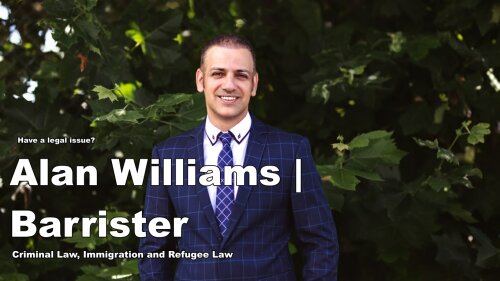Best Bail Bond Service Lawyers in Auckland
Share your needs with us, get contacted by law firms.
Free. Takes 2 min.
List of the best lawyers in Auckland, New Zealand
About Bail Bond Service Law in Auckland, New Zealand:
In Auckland, New Zealand, the concept of a 'bail bond service' as it is known in countries like the United States, does not technically exist. Instead, bail is a legal mechanism where a defendant is allowed to be released from custody between the period of their arrest and their hearing, often under a series of conditions often including a monetary guarantee.
The Bail Act 2000 governs all bail procedures in Auckland and the rest of New Zealand. This act includes provisions on when a defendant can be granted or denied bail, the responsibilities of those on bail, and consequences of bail breaches.
Why You May Need a Lawyer:
Despite the lack of a commercial bail bond industry, engaging a lawyer is still crucial when applying for bail for several reasons. Firstly, a lawyer can provide advice and guidance on navigating the bail process. Secondly, a lawyer can advocate on your behalf in a bail hearing, arguing why you should be granted bail and assisting in setting reasonable bail conditions. Finally, a lawyer can provide representation if you are accused of breaching bail conditions.
Local Laws Overview:
Under the Bail Act 2000, there a range of considerations that a court will take in to account when deciding whether to grant bail. These considerations can include the nature of the offence, the strength of the evidence against the defendant, and the defendants past criminal history. Factors such as a defendant's employment and community ties may also be considered.
A breach of bail conditions is treated as a serious matter, and can result in the defendant being remanded in custody until trial or facing additional charges.
Frequently Asked Questions:
How is bail decided?
Bail is typically decided by a judge during a bail hearing. The judge will consider a range of factors, including the severity of the offence, the defendant's criminal history, and their ties to the community.
Can bail be denied?
Yes, bail can be denied if the court believes there is a significant risk that the defendant will fail to appear in court, tamper with witnesses or evidence, or commit further offences while on bail.
What happens if bail conditions are breached?
If bail conditions are breached, the defendant can face severe penalties including being remanded in custody until trial or facing additional charges.
Do I need a lawyer for a bail application?
While it is not legally required, having a lawyer for a bail application is strongly recommended. A skilled lawyer can help navigate the complexities of the application process, present arguments in your favour, and Negotiate for reasonable bail conditions.
How long does the bail process take?
The bail process can vary in length depending on the specifics of the case. However, a bail hearing is typically held soon after an arrest.
Additional Resources:
Legal aid is available for those who cannot afford a lawyer through the Ministry of Justice. The Community Law Centre also offers free advice and information on various legal issues. For the more comprehensive understanding of the law, you may refer to the New Zealand Legislation website where you can access the full text of the Bail Act 2000.
Next Steps:
If you need legal assistance related to bail in Auckland, your first step should be to consult with a lawyer. If you cannot afford a lawyer, inquire about the process for applying for legal aid with the Ministry of Justice. Remember to cooperate fully with your legal counsel and to adhere strictly to any bail conditions that may be imposed to avoid further legal complications.
Lawzana helps you find the best lawyers and law firms in Auckland through a curated and pre-screened list of qualified legal professionals. Our platform offers rankings and detailed profiles of attorneys and law firms, allowing you to compare based on practice areas, including Bail Bond Service, experience, and client feedback.
Each profile includes a description of the firm's areas of practice, client reviews, team members and partners, year of establishment, spoken languages, office locations, contact information, social media presence, and any published articles or resources. Most firms on our platform speak English and are experienced in both local and international legal matters.
Get a quote from top-rated law firms in Auckland, New Zealand — quickly, securely, and without unnecessary hassle.
Disclaimer:
The information provided on this page is for general informational purposes only and does not constitute legal advice. While we strive to ensure the accuracy and relevance of the content, legal information may change over time, and interpretations of the law can vary. You should always consult with a qualified legal professional for advice specific to your situation.
We disclaim all liability for actions taken or not taken based on the content of this page. If you believe any information is incorrect or outdated, please contact us, and we will review and update it where appropriate.













